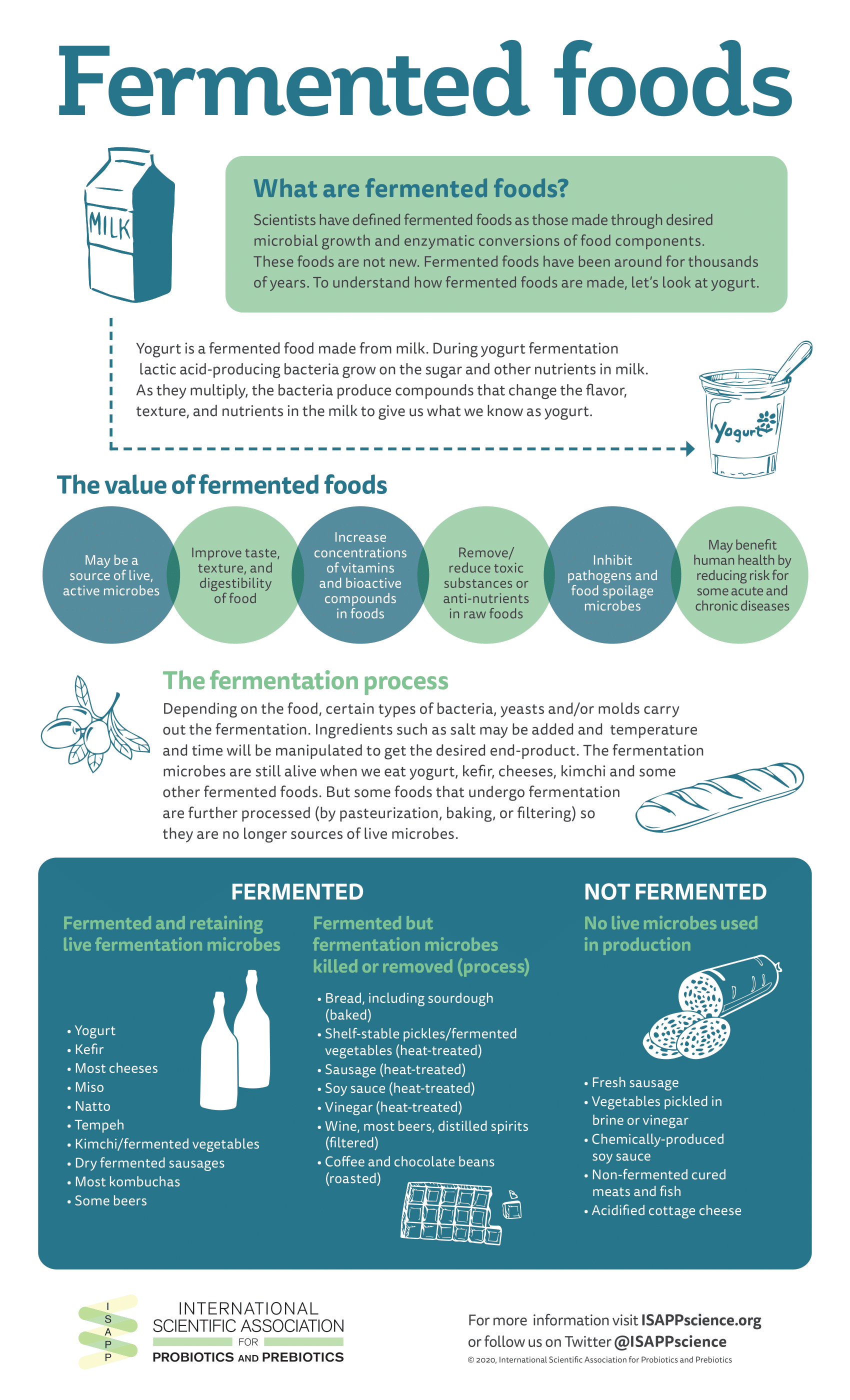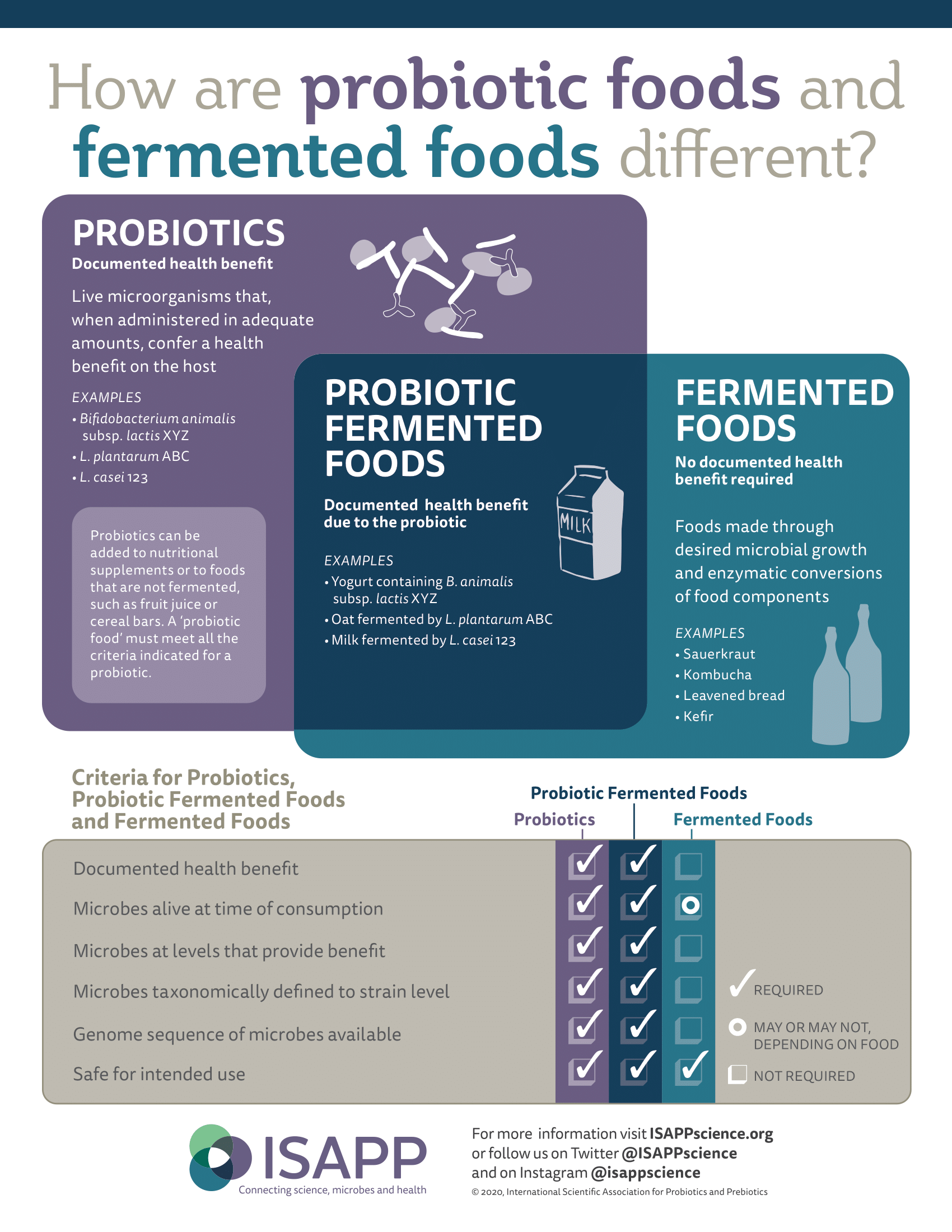Photo by https://deankalyan.com/ Copyright, ISAPP 2020
Fermented foods are defined as “foods made through desired microbial growth and enzymatic conversions of food components”. Throughout human history, fermentation has served as a way to preserve and transform foods, creating more stable and diverse foods with unique organoleptic, textural and functional properties.
Fermentation processes can be classified based on the microorganisms used in their manufacture, by the primary metabolites these microbes produce, or by the type of food used as the starting material. In general, among the most important microbes are the group known as lactic acid bacteria, as these are used for dairy (cheese and yogurt), vegetable (sauerkraut and kimchi), cereal (sourdough bread), and meat (salami) fermentations. Other bacteria, including those that produce acetic acid and propionic acid, are also important in various foods. The other main group of fermentation microorganisms are the fungi, especially yeasts used for baking, brewing, and wine-making. Also within the fungi are molds that are used in fermented meats and cheese, but also soy sauce, miso and tempeh.
Not all fermented foods contain live cultures. Many food products undergo further processing after fermentation: pasteurization, smoking, baking, or filtering. All of these processes can kill or remove the live microorganisms. Examples of foods that undergo fermentation but do not contain live microorganisms at the time of consumption include soy sauces, most beers and wines, bread, and chocolate.
There is a growing acknowledgment that fermented foods have potential nutritional and other health benefits. The literature suggests transforming original food substrates through fermentation leads to the formation or increase of bioavailable end-products such as vitamins. Fermentation may also remove or reduce food toxins. Meanwhile, the microorganisms themselves (whether live or dead) can have an impact on the microbiota and immune system. While studies are limited, and more randomized, controlled trials are needed, current data suggest that consumption of fermented foods may be linked to better health. Some large cohort studies have found strong associations between weight maintenance and the consumption of fermented dairy products. Other long-term prospective studies showed reductions in the risk of cardiovascular disease, type 2 diabetes, and overall mortality with frequent yogurt intake.
Related ISAPP infographics
This ISAPP educational video covers fermented foods and how they may affect health.
Access a 2020 ISAPP / BNF webinar on fermented foods here.







